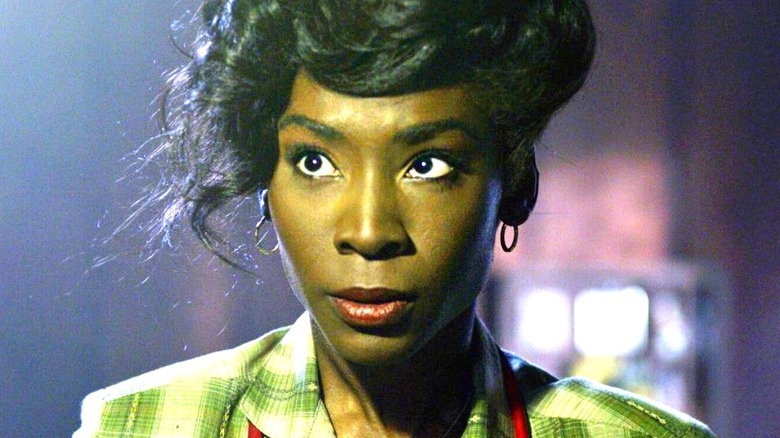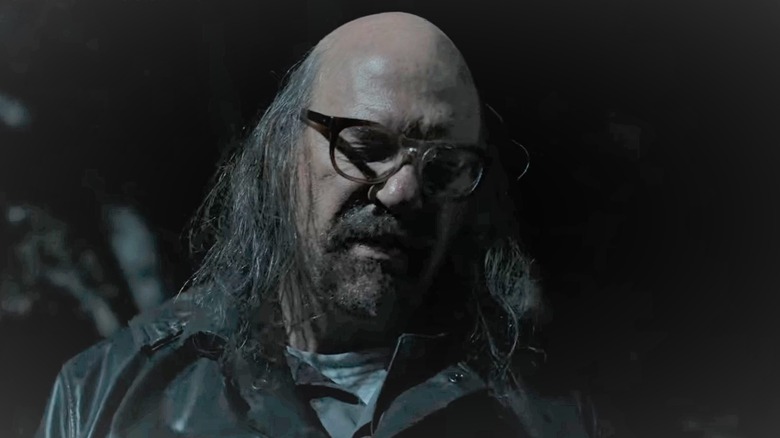The Stephen King Reference You Missed In American Horror Story: 1984
Contains spoilers for "American Horror Story: 1984"
FX anthology series "American Horror Story" is known for including plenty of Easter eggs and connecting threads that bind together the show's otherwise disparate seasons. It's also a series that is chockablock with references to other famous horror moments from pop culture and history. That is especially true of the series' ninth (and best, according to some fans) season "American Horror Story: 1984," which weaves together tropes common in '80s slasher flicks, the bloody stories of real-life serial killers, and American folklore.
One of the central characters in the long and twisted story of Camp Redwood is Benjamin Richter (John Carroll Lynch). By the end of the narrative, viewers come to realize that Benjamin is a sympathetic character who was the product of childhood tragedy. However, for much of the season, he's known as Mr. Jingles, a menacing serial killer who offs the counselors of Camp Redwood with a vengeance.
In the series, Benjamin's onomatopoeic nickname is a reference to the large keyring he carries around with him. That moniker has a deeper referential significance, though, as Mr. Jingles is also the name of a character from one of the best-loved novels by horror master Stephen King.
The two Mr. Jingleses
The serial novel "The Green Mile" primarily takes place on Cold Mountain Penitentiary's death row in the early 20th century. Many of the novel's central characters are either inmates awaiting execution or the guards charged with monitoring them. Among the condemned is Mr. Jingles, who is unique compared to the other characters in the novel because he is a mouse, not a person. The well-behaved rodent is the close friend of an inmate named Del and although Mr. Jingles has about as much characterization as one can expect from a mouse not named Stuart Little, he is a crucial fixture in the story.
When looking at the two Mr. Jingleses, there aren't a ton of direct comparisons to be made between the man and the mouse. However, Benjamin's narrative throughout "1984" is rich with themes of false persecution and childhood tragedy begetting troubles in adulthood, which are also woven throughout "The Green Mile." Regardless of whether or not bestowing the nickname Mr. Jingles on Benjamin was meant to directly compare the "1984" character with the mouse from "The Green Mile," it remains as a nice little reference for fans of the series who also have a deep knowledge of the classics of horror and supernatural literature.
If you're curious about what other references are hidden throughout "American Horror Story," you can currently stream all nine seasons on Netflix.

